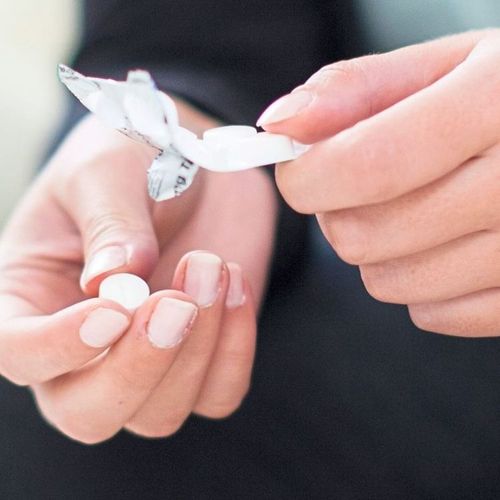Acetaminophen may be a contributing cause 6.of hypertension.
Recent finding: 'Women who take a daily dose of more than 500 milligrams of the aspirin-free painkiller—the equivalent of one extra-strength Tylenol—have double the risk of developing high blood pressure within three years. Ibuprofen (Advil and Motrin) and naproxen (Aleve) have been linked to hypertension, but until recently, acetaminophen was considered safe.
Best: Monitor blood pressure if you are taking these drugs.
The Secret Recipe for Hair Growth
When you hear the word "aromatherapy," you probably think of a scented bath or a fragrant candle.
But medical practitioners in the United States and around the world are using distilled oils of aromatic plants medicinally. Essential oils activate the parasympathetic nervous system, causing relaxation, which speeds healing.
AROMATHERAPY IN ACTION
Plant oils can be used in a warm bath...in a “carrier oil”—such as almond or sesame oil—for massage...or in a lotion.
The oil aromas can also be sniffed from a bottle...a cotton ball...or a diffuser—a machine that emits the aroma into the air.
Clinical and scientific studies support the use of aromatherapy as an adjunct to medical care for treating...
- Anxiety. Essential oils that were inhaled for three minutes relieved anxiety in men and women, according to research published in the International Journal of Neuroscience. Use rosemary Roman chamomile or patchouli.
Typical treatment: Sniff one to three drops when anxious.
Caution: Avoid using rosemary if you have high blood pressure.
- Bronchitis. Use spike lavender.
Typical treatment: One drop of spike lavender in a bowl of three cups of boiling water. Drape a towel over your head, close your eyes and inhale the steam. Do this for five minutes, four times a day.
- Hair loss. In people with patchy hair loss due to alopecia areata, essential oils helped restore hair growth, notes an Archives of Dermatology, t study that used a carrier oil containing a mixture of thyme (two drops), rosemary (three drops), lavender (three drops) and cedarwood (two drops).
Typical treatment: Massage the mixture into the scalp for two minutes daily.
- Headache. Use peppermint. If pain isn't gone in five minutes, try Roman chamomile or true lavender.
Typical treatment: Five drops in one teaspoon of carrier oil. Apply to temples or sniff.
- Hot flashes. Use clary sage, fennel, geranium or rose.
Typical treatment: Ten drops in two cups of water in a spray bottle. Spray on face during hot flash.
- Insomnia. Use ylang ylang, neroli or rose.
Typical treatment: Five drops in a diffuser placed in the bedroom.
- Lower-back pain. Use lemongrass. If you feel no relief in 20 minutes, try rosemary or spike lavender.
Typical treatment: Five drops in one teaspoon of carrier oil. Apply to the painful area every three hours.
- Menstrual cramps. Use geranium.
Typical treatment: Five drops added to one teaspoon of carrier oil. Rub on the lower abdomen and lower back every three hours.
- Muscle spasms. Use clary sage, sage or try lavender.
Typical treatment: Five drops added to one teaspoon of carrier oil. Apply to the affected muscles at least every three hours.
- Osteoarthritis. Use frankincense, rosemary or true lavender.
Typical treatment: Five drops added to one teaspoon of carrier oil. Apply to the painful area every three hours.
WHAT TO BUY
Aromatherapy is most effective when the essential oils are prepared with no extraneous ingredients.
A good brand is Scents & Scentsibility www.scentsibility.com). Their essential oils are also available in health-food stores.
USING AROMATHERAPY SAFELY
Some essential oils can irritate or burn skin if applied undiluted. Always dilute oils before using topically. If skin stings or becomes red, dilute with a plain carrier oil and wash with unperfumed soap.
Essential oils are flammable. Store them away from candles, fires, cigarettes and stoves. Don't pour oil on lightbulbs to scent a room.
Caution: Essential oils can be lethal if they are ingested-even in tiny doses. Keep away from children and pets. People with asthma or epilepsy and pregnant women should consult their doctors before using aromatherapy.
